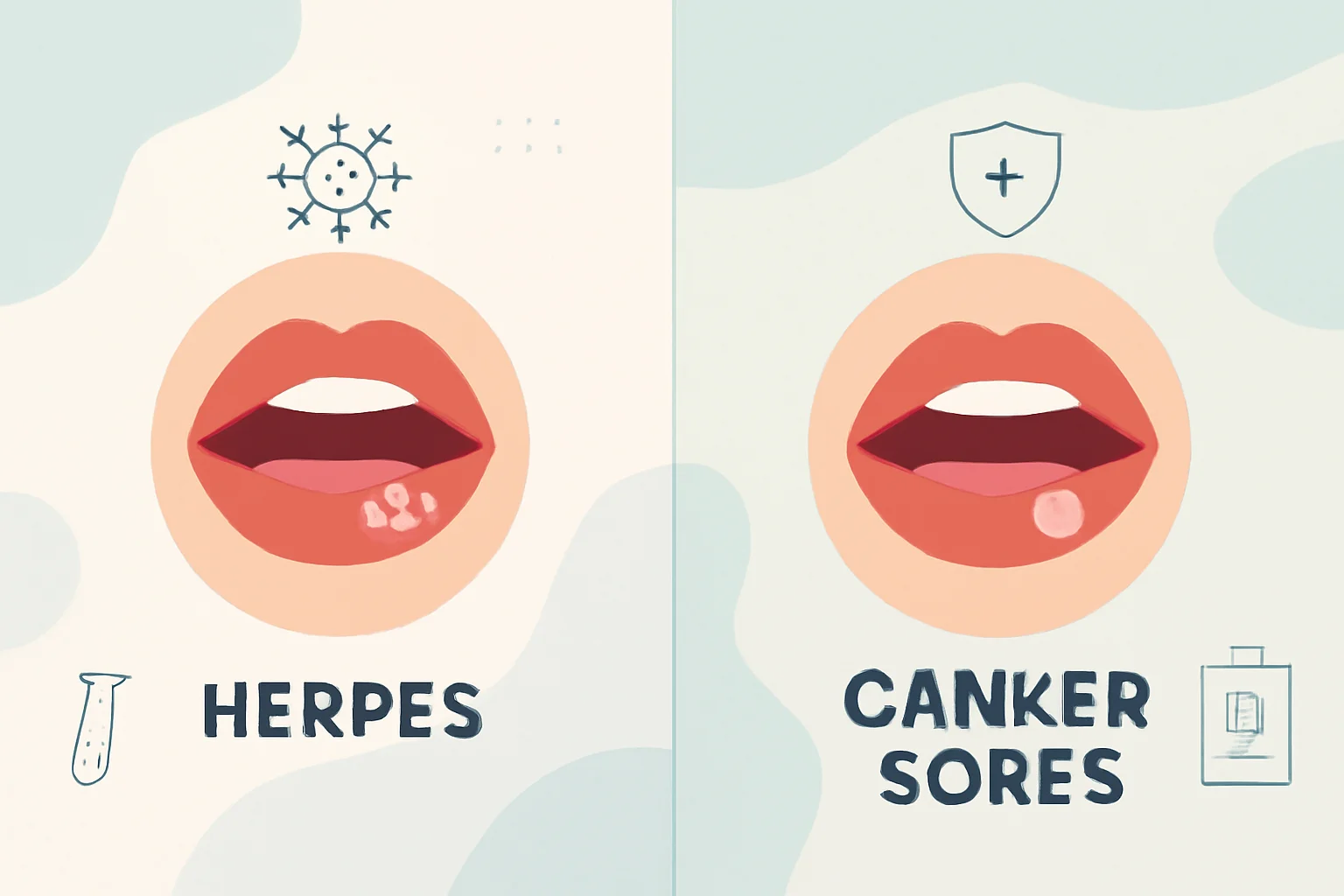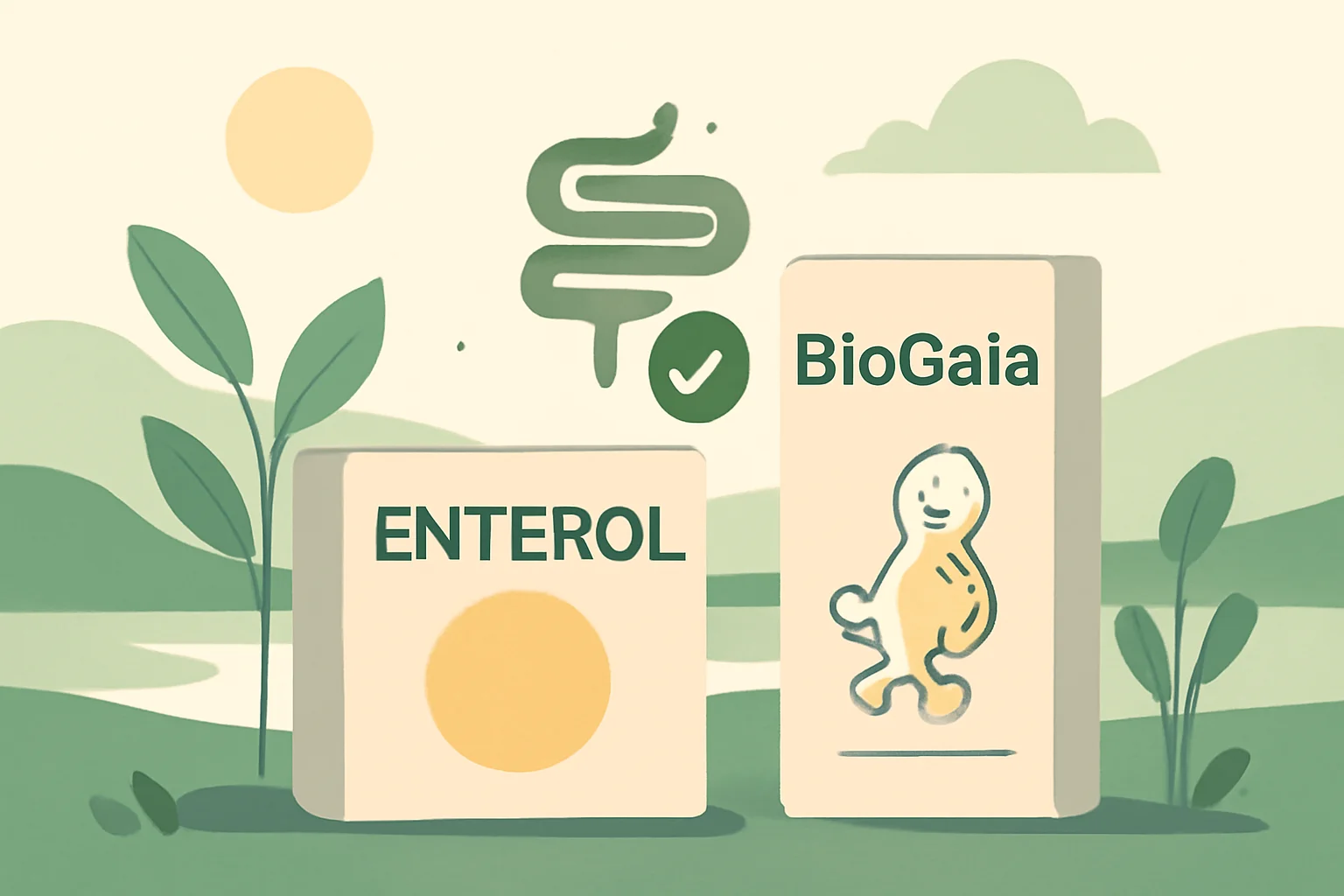
Herpes or Canker Sore: How to Distinguish and Treat Them?
Aoral problems, such as herpes and canker sores, can significantly affect many people’s lives, especially when pain and discomfort are persistent. These two conditions are often confused due to their similar symptoms; however, they have fundamentally different causes and treatment methods. Herpes, caused by the herpes simplex virus, typically presents as painful blisters around the lips and mouth area. In contrast, canker sores, or oral mucosal inflammation, result in small, painful ulcers that can develop inside the mouth, such as on the gums or tongue.
Although both conditions can be unpleasant and disruptive, it is essential to understand that their treatments may vary. Herpes is viral in nature and often recurrent, while canker sores are generally non-contagious and can be attributed to various factors, including stress, dietary habits, and vitamin deficiencies. Maintaining oral health requires awareness of these differences so that appropriate steps can be taken for prevention and treatment.
Herpes: Symptoms and Causes
Herpes caused by the herpes simplex virus (HSV) is the most common oral infection. Symptoms of herpes typically appear a few days after infection, with primary symptoms including itching, burning, and pain in the affected area. Following this, small blisters develop, which later burst and leave painful sores. These sores can be very painful, especially when the person is eating or talking.
Common triggers for herpes include stress, colds, flu-like illnesses, sunburn, and a weakened immune system. The virus is highly contagious and can easily spread through direct contact, such as kissing, or if someone touches the blisters and then touches their own mouth.
Antiviral medications are generally used to treat herpes, helping to reduce symptoms and shorten healing time. Topical pain relievers, such as lidocaine, can also help alleviate pain. It is important to avoid close contact with others during a herpes outbreak, especially young children and immunocompromised individuals, to prevent the spread of the virus.
Canker Sores: Symptoms and Causes
Canker sores, also known as aphthous stomatitis, are a painful but generally non-contagious condition that occurs inside the mouth, such as on the gums, tongue, or palate. Canker sores typically appear as small, white or yellowish ulcers located at the reddish edges of the oral mucosa. The pain they cause is particularly noticeable during eating or speaking, and in many cases, the sores take a few days to heal.
The causes of canker sores can be diverse. Common triggers include stress, hormonal changes, vitamin deficiencies (especially B12, folic acid, and iron deficiencies), as well as dietary habits such as consuming spicy or acidic foods. In some individuals, oral injuries, such as accidental damage from a toothbrush, can also lead to the development of canker sores.
Treatment for canker sores generally focuses on pain relief and reducing inflammation. Topical anesthetics and anti-inflammatory medications can help alleviate discomfort. Additionally, it is advisable to monitor dietary habits and avoid spicy, acidic, or irritating foods while the sores heal. If canker sores occur frequently, it is worth consulting a doctor to rule out underlying health issues.
Differences and Similarities
Although herpes and canker sores are often confused, there are several fundamental differences between the two conditions. One of the most significant differences is the cause: while herpes is viral in nature, canker sores are generally non-contagious and can be caused by various internal or external factors.
Herpes symptoms typically appear suddenly, whereas canker sore pain may develop gradually until the sores appear. Herpes manifests as blisters, while canker sores present as small, white or yellowish ulcers. Herpes tends to recur, especially during stressful periods, while canker sores usually appear due to a specific event or condition and are not characterized by recurrence.
Treatment also differs: herpes requires antiviral medications, while canker sore treatment typically involves pain relievers and anti-inflammatory medications. Dietary changes can help prevent canker sores, while preventing the spread of the herpes virus is paramount.
For a proper diagnosis, it is important to consult a doctor if any oral issues arise so that appropriate treatment can be received.
Note: This article does not constitute medical advice. If you have any health concerns, please consult a doctor.

